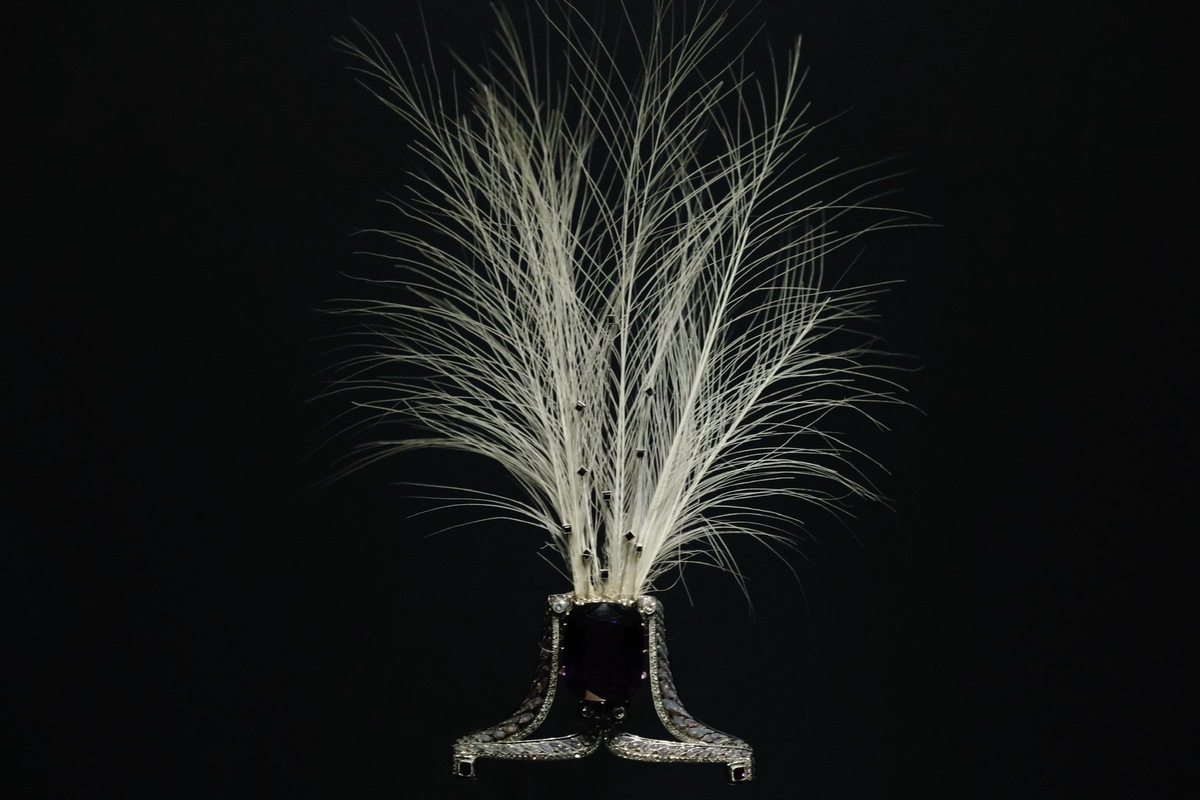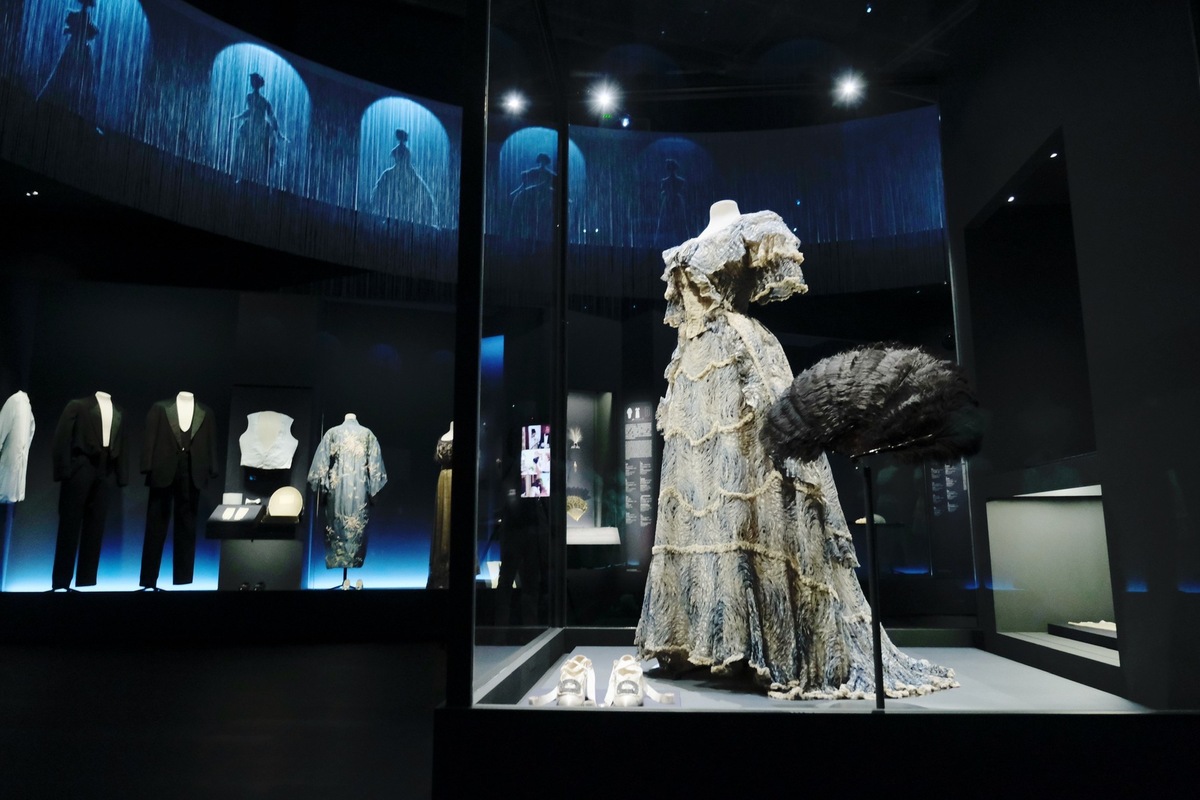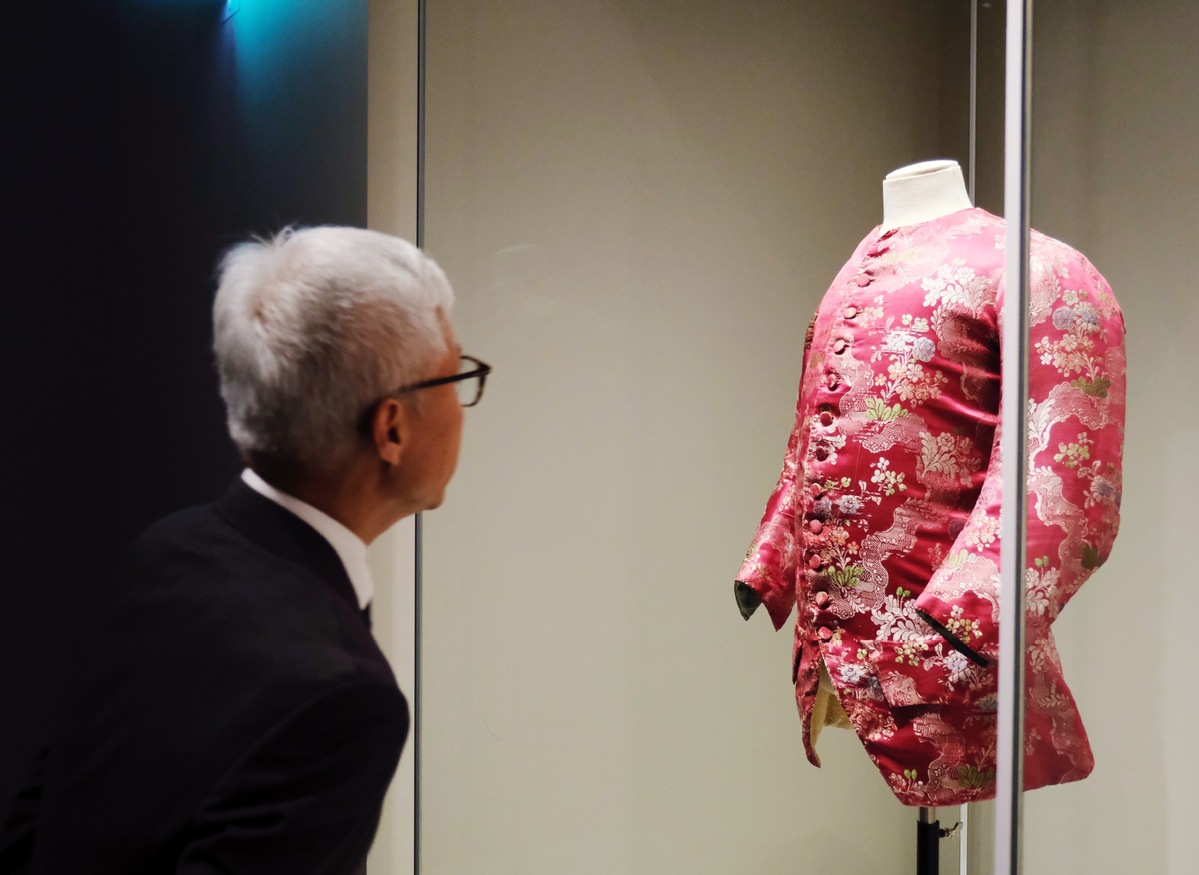Unfurling the Scroll of French Fashion History in Hong Kong

HONG KONG — In a dimly lit exhibition hall at the Hong Kong Palace Museum, exquisitely crafted vintage clothing and accessories are illuminated by spotlights, as clips from classic movies play silently in a loop, creating the sense of traveling through time.
Nearly 400 items of French clothing, jewelry, and accessories from the late 18th to the early 20th centuries are on display, telling the story of fashion and attire like a centuries-old scroll.
This year marks the 60th anniversary of the establishment of diplomatic relations between China and France. The Hong Kong Palace Museum and the Musee des Arts Decoratifs in Paris have organized a special exhibition, Adorned Body: French Fashion and Jewelry 1770-1910 from the Musee des Arts Decoratifs, Paris, to chronicle the evolution of French fashion trends.
According to Ingrid Yeung, associate curator of the Hong Kong Palace Museum, French fashion has profoundly influenced the world, and its evolution has been shaped by the integration of multiple cultures.
"A lot of French fashion design was also inspired by Chinese culture," Yeung says, adding that there was clothing, porcelain and scarves on display that draws inspiration from Chinese elements.
"The initial goal of the establishment of the Hong Kong Palace Museum was to promote Chinese culture and facilitate cultural exchange," the Hong Kong museum director Louis Ng says.

Ng hopes that as visitors explore centuries-old French fashions, they will also discover ancient Chinese court clothing and jewelry in the other exhibition halls, adding that through cross-cultural dialogue across time and space, they will be able to appreciate the beauty of the convergence of cultures.
He says that in addition to this exhibition, the Hong Kong museum will hold a special exhibition in cooperation with the Palace of Versailles to celebrate the 60th anniversary in France at the end of this year.
The Musee des Arts Decoratifs has chosen the most historically valuable items from its 1.4 million-strong collection, many of which had never left France, for exhibition in Asia for the first time.
"We hope that people in Hong Kong and the mainland will have the opportunity to appreciate these precious exhibits," Denis Bruna, a curator at the French museum, says.
Mathieu Rousset-Perrier, another of the French museum's curators, says the storage, transportation and display of the artifacts require strict attention to temperature, humidity, lighting and other environmental conditions.
Prior to the exhibition, French cultural heritage personnel traveled to Hong Kong to inspect the facilities and equipment and were impressed by what they found.
"The costumes are all antiques, very fragile. We are particularly careful when we handle them," Yeung says, adding that the amount of time it took to organize the exhibition greatly exceeded that required for previous events.

Lighting has been carefully designed not only with viewing in mind, but also to avoid excessive exposure. To properly protect these precious cultural relics, in mid-October this year, after the end of the three-and-a-half-month exhibition in Hong Kong, all the exhibits will be returned to France for safekeeping.
Hong Kong singer Karen Mok recorded the exhibition narration in Cantonese, Mandarin and English, which visitors may listen to on-site or online.
"It was fun and creative, and I learned a lot from it," Mok says, adding that she was honored to be chosen for the job.
The singer says she has always enjoyed visiting museums and is proud to have the Palace Museum in her home city.
"Hong Kong is such a unique place where Chinese and Western cultures collided and blended, resulting in creativity and inspiration," Mok says. "I hope people from all over the world will be able to better understand our culture."
Over the past two years, the Hong Kong Palace Museum has received more than 2.5 million visitors.
Ng says that the exhibitions have included both traditional artifacts and contemporary art, and that visitors are getting used to this new mix.
He hopes to deepen cultural exchange between China and other countries in the future, by staging exhibitions overseas and working with museums abroad on joint exhibitions.
"It will be wonderful!" Ng says, excitedly anticipating the future cultural dialogues.
Xinhua
